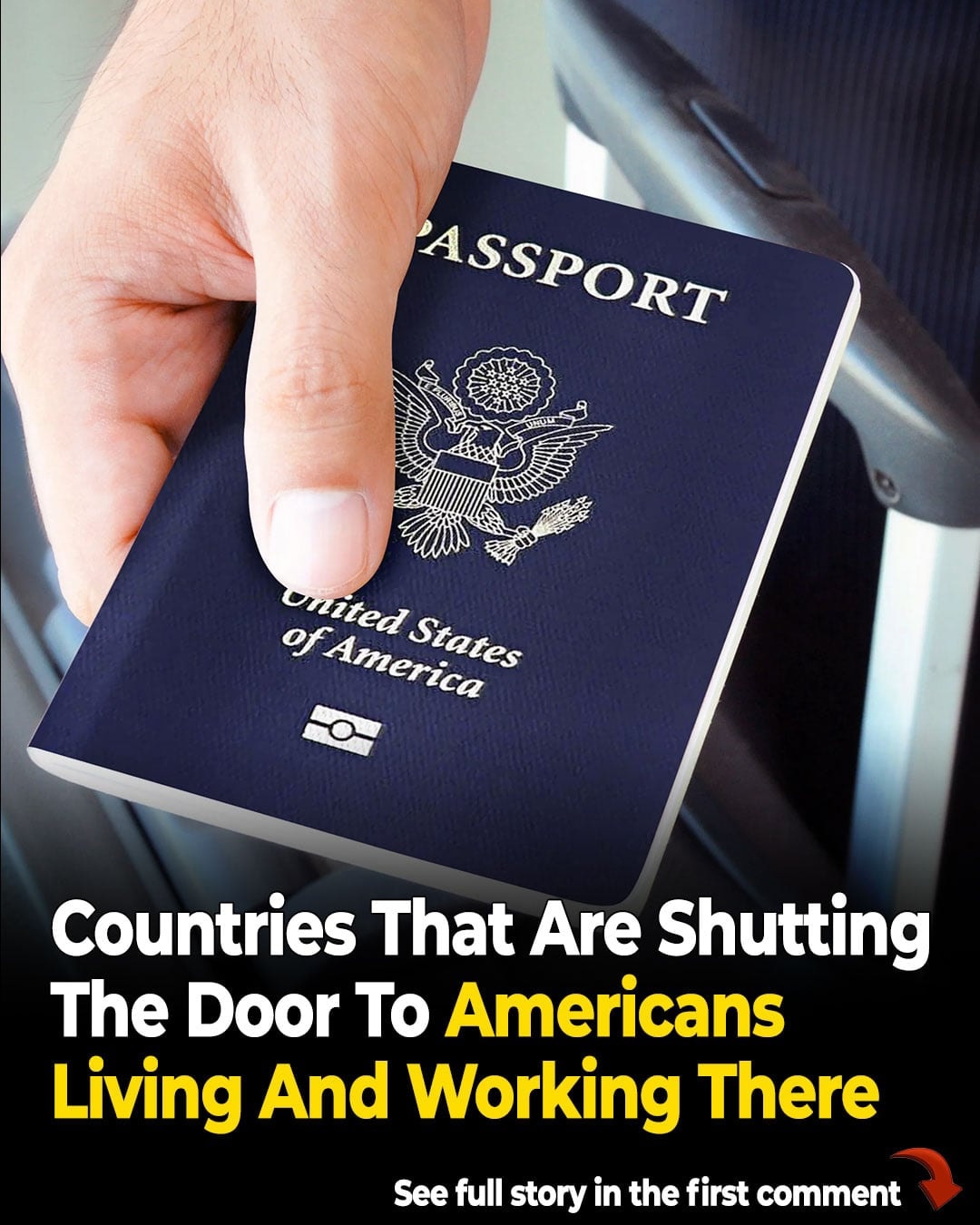Americans Abroad Face Growing Hurdles in 2025
Americans have long sought adventure, better careers, or a fresh start abroad. Many countries welcomed U.S. citizens with open arms, offering remote work visas and long-term residency. But in 2025, that landscape is shifting. Several nations are tightening immigration rules, making it harder for Americans to live and work overseas. Changes include new visa requirements, travel authorizations, and stricter law enforcement.
Political tensions, housing shortages, and national security concerns drive these changes. What once was a straightforward move now involves more paperwork, uncertainty, and delays. If you’re planning to relocate abroad, understanding the new rules is crucial. From North America to Asia, five countries are now imposing significant restrictions.
The Boom of Global Travel and Digital Nomads
More Americans than ever are exploring life outside the U.S. Remote work and easier international travel fuel this trend. Young professionals, retirees, and families seek lower living costs, better work-life balance, or cultural adventures.
Countries like Portugal, Thailand, and Mexico see a surge in long-term American visitors. Digital nomad visas and flexible residency programs attract many. Social media also encourages this trend, highlighting the perks of life abroad.
However, rising numbers create challenges. Crowded cities and local concerns about rent or jobs push governments to rethink entry rules. The boom in travel is prompting tighter boundaries, not personal hostility toward Americans.
Why Americans Are Moving Abroad
Americans pursue overseas life for many reasons:
-
Escape high living costs, especially in big U.S. cities
-
Access affordable healthcare and safer communities
-
Avoid political frustrations or burnout
-
Stretch retirement savings further
-
Experience new cultures, learn languages, and offer kids international education
The desire for simplicity, slower living, and meaningful experiences drives these choices. Yet, stricter visa rules increasingly complicate plans.
Japan: New JESTA Rules
Japan, once lenient for visa-exempt visitors, plans a new travel authorization system called JESTA by 2028. Travelers will submit personal information online before entry. The move targets illegal immigration and strengthens national security.
Japan is also enforcing long-term visa overstays. Americans planning extended stays must track updates carefully and comply with all regulations.
Canada: Slower U.S. Immigration
Canada remains a top choice for Americans due to proximity, culture, and quality of life. But rising U.S. migration has led to slower immigration processes. Temporary worker programs and student visas face stricter scrutiny.
These changes aim to protect housing and healthcare resources in cities like Toronto and Vancouver. Americans should expect longer wait times, tougher background checks, and more competition.
UAE: Strict Legal Enforcement
The UAE attracts Americans for work, tourism, and tax-free opportunities. Yet the country enforces strict laws. Even legal U.S. medications like ibuprofen or CBD oil can cause arrests.
Public behavior, social media activity, or dress codes may lead to legal trouble. Americans considering the UAE should research rules thoroughly and consult legal advisors.
Russia: Tighter Visas Amid Tensions
U.S.-Russia tensions affect visa policies. Russia labels the U.S. an “unfriendly country,” resulting in extra paperwork, longer approvals, and potential travel bans.
Americans must monitor news and consider immigration lawyers. Living in Russia remains possible but unpredictable.
China: Tourist Visas Relaxed, Risks Persist
China eased tourist visa requirements in 2024, removing the need for flight and hotel proof and expanding visa-free transit.
However, risks remain. The U.S. government warns of exit bans and unpredictable law enforcement. Long-term residency requires careful legal planning and embassy registration.
Why Restrictions Are Rising
Countries are tightening rules worldwide due to political friction, security concerns, and high travel volumes. Locals fear over-tourism, rising costs, and cultural shifts. Governments respond with quotas, extra paperwork, and stricter visa rules.
Americans abroad must stay alert. Follow embassy alerts, monitor local news, and consult immigration experts. Restrictions are growing, but preparation mitigates risk.
Planning Matters
In 2025, Japan, Canada, the UAE, Russia, and China have made it harder for Americans to live and work abroad. Rising travel trends, local pressures, and global tensions drive these changes.
Yet, with research, proper documentation, and caution, Americans can still achieve their dream of living overseas. Staying informed, following local laws, and remaining flexible make all the difference.

